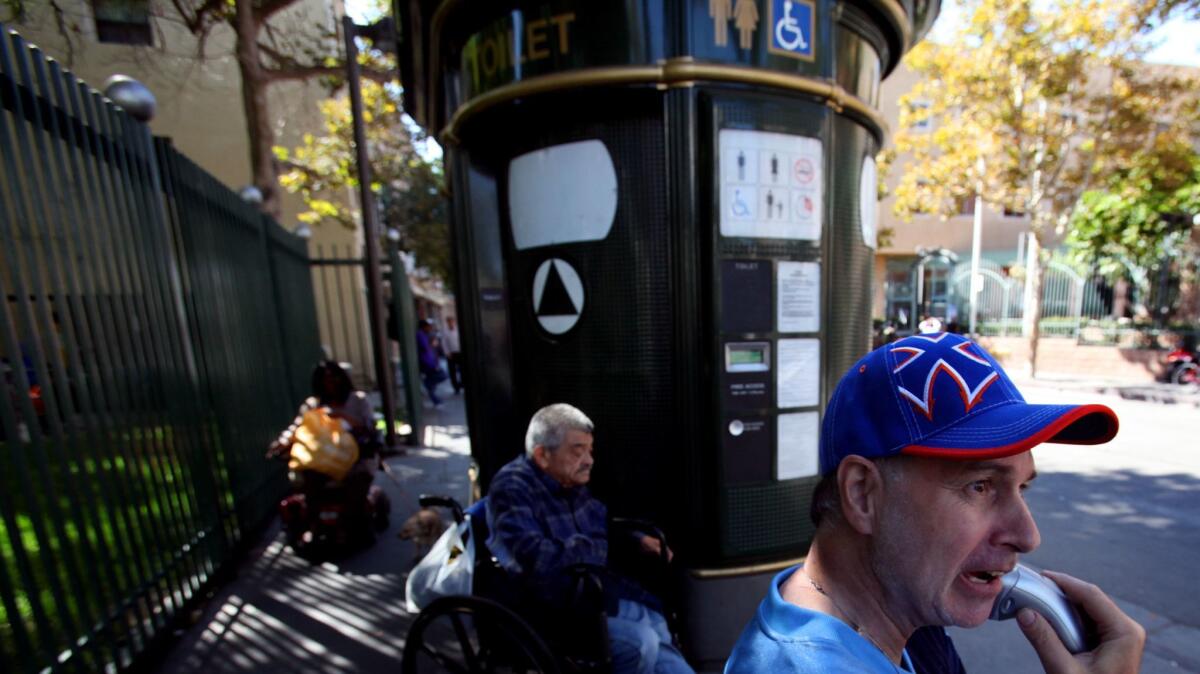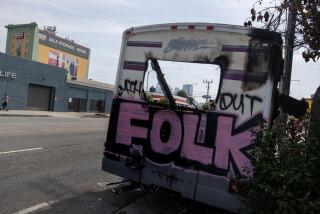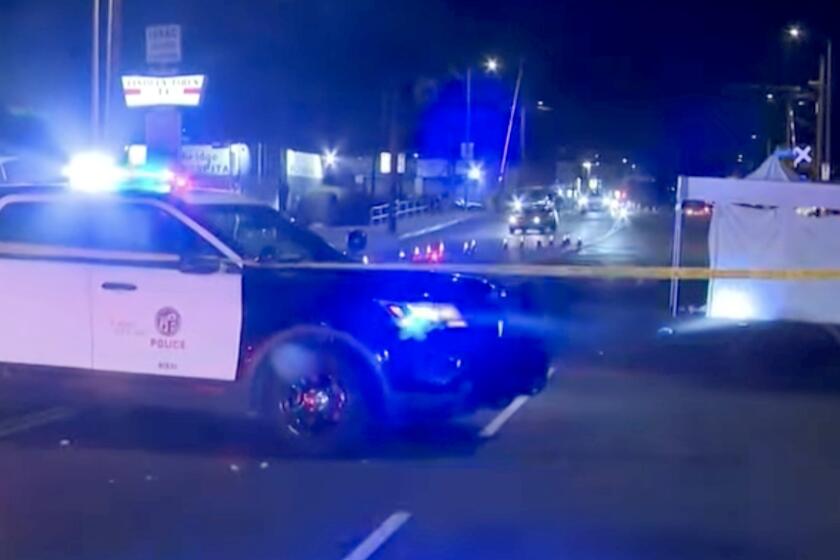L.A. seeks to alter, extend deal for bus shelters and public toilets after disappointing results

An outdoor advertising company could get another 10 years to install bus shelters, public toilets and other “street furniture” in Los Angeles, after lawmakers took steps Friday toward altering and extending a contract that has been a financial disappointment for the city.
The Los Angeles City Council voted 11 to 2 to instruct city lawyers to negotiate an amended agreement with Outfront JC Decaux. It would adjust annual fees received by the city, expand wireless internet and add bathroom attendants, and extend the term of the 20-year agreement for another decade.
That deal would have to come back to the council for final approval. If the negotiations do not wrap up within roughly four months, the city will start seeking proposals from other companies.
After a short debate, Councilmen Mike Bonin and Joe Buscaino balked at the move. Bonin questioned why the city was extending the longstanding contract instead of putting out a new deal for bidders. If it is not extended, the current agreement would end in three years.
“We don’t know what the best deal is for the taxpayers,” Bonin said after the vote.
A Bureau of Street Services official told lawmakers that extending the existing contract would ensure that bus shelters and other needed amenities are installed on city streets within months, instead of waiting years as companies went through the process of competing for a new contract.
“We can start seeing tangible benefits for the community right away,” said Councilman Bob Blumenfield, who heads a committee that backed the plan.
The decision comes six years after a critical audit from the city controller found that L.A. was not getting tens of millions of dollars in revenue from the contract, chiefly because it was lagging in approving bus shelters and other installations that could be emblazoned with ads.
When the exclusive contract was awarded in 2001, city leaders had envisioned the installation of more than 1,000 bus shelters that would shade people from the sun.
But a city report last year found that fewer than 700 bus shelters had been installed. And as the city was buffeted by rising homelessness, only 15 automated toilets had been put in — well below the 150 that had been expected when the deal was struck.
Fifteen years into the agreement, Los Angeles had received more than $54 million in revenue, the report found. That is far short of the $150 million that the company had once been expected to provide over two decades.
In a 2012 audit, then-City Controller Wendy Greuel wrote that “this contract was unrealistic in terms of expectations from the very beginning.”
The deal set up a schedule for installing bus shelters and other fixtures that was “simply not realistic,” especially in light of a “cumbersome approval process” Greuel wrote.
In addition, Greuel said the city had lost the chance to collect millions of dollars because of the way that annual fees had been calculated.
In the past, the advertising company has complained that city officials caused the delayed rollout and reduced revenues because they had turned down many proposed locations for bus shelters and advertising “pillars.”
“We haven’t gotten all the amenities that we’ve asked for over the years — but we also haven’t done all the things that we’re supposed to do to get those amenities,” Blumenfield said.
As the city seeks to renegotiate the agreement, L.A. lawmakers want to revise the way that installation sites are approved so they happen “in a timely manner” — a key recommendation from the audit six years ago.
They also want to negotiate adjustments to the minimum annual fee and ensure that bus shelters are installed in a way “that reflects the types and quantities originally contemplated by the agreement.”
And they are seeking new and expanded services, including wireless internet at bus stops, attendants to monitor some public toilets, and power washing at some heavily used stops.
City staffers said that extending the agreement another decade would ensure enough time for 600 to 700 new bus shelters to be installed, Blumenfield spokesman Jake Flynn said. In a report, the Bureau of Street Services and other city staff said the contract extension would “maximize revenue for both parties.”
Twitter: @AlpertReyes
More to Read
Sign up for Essential California
The most important California stories and recommendations in your inbox every morning.
You may occasionally receive promotional content from the Los Angeles Times.












